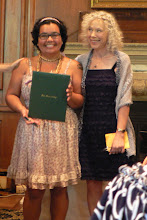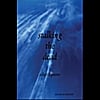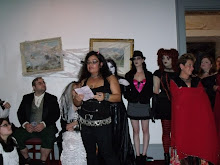I was only going to share this with Life Sentence, my critique group, but I realized as I was transcribing it, this is powerful stuff. I had forgotten how much of my theology, my view of the Christian publishing industry, my life view was formed by this one “little” speech given by David Kopp so many years ago. It is the only tape I have pulled out over the years and listened to repeatedly. It is also a challenge to those of us, be we writers, artists, whatnot when given the opportunity to speak, speak truth. Speak for God. Your topic can be more than just the subject matter, whatever it happens to be, it can change lives as this speech has for me. I used (or tried) proper caps for your reading ease and since these are David Kopp’s words and not my own. Be blessed. (This is only the first installment, two more to come over the next few days).
David Kopp, “Writing Empty Like and Open Hand.”
Plenary address given at Just Write, writers conference at Biola University, July 28-31, 1991
Introduction of Speaker by Susan Titus Osborn.
It is my pleasure this morning to introduce to you the keynote speaker, who has become one of my dear friends. He is the editor of Christian Parenting Today magazine. He directed the school of Journalism at Multnomah School of the Bible for eight years. He has been actively involved in Christian writing and writers programs since 1978. I really feel, this is obviously not on his bio, but I obviously feel he started with a magazine that was brand new not very many years ago, and he has turned it into one of the most credible and one of the largest Christian magazines in the nation. I introduce to you, David Kopp.
The title of my address is, “Writing Empty like an Open Hand.” This is a topic, which kind of picked me. It picked me before I knew what I was supposed to say about it. I don’t know if you’ve ever had that experience. I always liked reading the stories of John Cheever and he used to say many of his best short stories started with the last line. This is a topic title I have been living into for a number of months since Susan first said okay on the phone. That was a great act of courage on her part. Because I had no idea what I wanted to say about it. It was something that seemed true about my life; it was the title of my journal at the time. As I thought about it, I came up with this description:
“Sometimes what we bring to our greatest writing opportunities is mostly weakness and longing. I have noticed that what’s called for at these moments is the courage not to turn away, but to remain. To practice a tenacious receptivity that feels like emptiness. At these moments I believe God is smiling with great anticipation.”
Does that sound pretty weird? It’s really a testimony of my life and my recent experience. Just being here to stand before you and say those things is important for me, part of my life, and my journey. I’m praying that what I say to you will be used in your journey perhaps you’ve experienced a time of emptiness, a time of feeling that God is asking you to speak, and you have nothing to say. I’m not talking about writer’s block. I’m not talking about procrastination. I’m not talking about this being an excuse for not being serious about your writer’s craft, about marketing, about any of those things. It seems to me that in my life, God has brought me to a place of complete bankruptcy before him and then he has said to me, just write.
Just a few facts about my experience, I don’t want to dwell on my own story. The details of it too much, just a few facts. At the very time I was coming to help start Christian Parenting magazine, three years ago my marriage was disintegrating very much against my wishes and my prayers. Since then, I have been the editor of a parenting magazine without a wife, without kids in my home. This has seemed often to me to be a cruel joke of God to me. How can God allow this? How can God ask me every two months to write a column about family? God has put his finger on the sorest part of my life and said, just write. Are you with me?
Perhaps you’ve had this experience. It’s my prayer that in just the few minutes we have that I can say something to you that will encourage you, because what I bring to you is not a story of despair, it’s a story of redemption in my life. I have a very simple outline. It’s three points. My dad was a preacher. What writing empty like an open hand means to me: (1) is to let go, and letting go is the story of the monkey. I should have told you I was born in Africa. (2) and the second point is that we are called to receive something precious others miss and this is the story of the snake. For you visual folks we have to put in really concrete things. (3) and the third point is writing empty like an open hand is to live the story of redemption, to incarnate the story of redemption, and this is the story of the chameleon. Okay, that’s where I am going.
(1) If I were to start a support group for me, Dave Kopp, our slogan would be like this. I would stand up before you and say, “my name is David Kopp and I’m a recovering grasper.” I used to watch African boys catch monkeys, when I was growing up. Catching monkeys is the easiest thing in the world. Monkeys are fast. Monkeys are smart. But they have a weakness, which I recognize. An african boy will take a gourd, a calabasa melon, dry it, hollow it out, put a little hole in the gourd, just large enough for a monkey to reach through with his fist, with his hand. Then the African boy will take this gourd and tie a string to it, a rope of bark, and tie it to the base of a tree and inside the melon the African boy will put something the monkey wants. You know a chicken bone, piece of fruit. Then just walk off a ways and sit and watch. Pretty soon, monkeys are curious. Aggressive. And the monkeys would come down.
Look at this neat little melon. It has a neat little hole in it. Has a neat little string going off to the neat little tree, wow. It’s just for me. Wow, there’s something in there, for me, it’s mine. The monkey is shaking it and looking in the hole. Wow, there’s something inside, and it’s just for me. It’s mine.. So the monkey reaches in with his hand and grasps the little piece of food in there, but he can’t get it out. Huh that’s weird. He can’t get it out.
Right then is when the African boy walks up, and catches the monkey. It’s a very sorry sight. The monkey is screaming, it’s terrible when a monkey screams, awful noise. It’s in agony. Tragedy has come upon it—but it won’t let go of the chicken bone. The monkey is caught.
That’s me. Perhaps it’s you. We have the hardest time of letting go of certain things in our lives. God pursues us to a place of poverty, and sometimes he literally peels our fingers away. He literally peels your finger off the very thing that you want the most. The very thing you think is indispensable to you as a person. To your happiness. To your ministry. He peels it away because you won’t let go. Until you let go, he can’t put anything else in your hand.
There were graspers in scripture. I would call them graspers. Peter was a grasper. He wanted to be in control, he had a plan. Jesus was going to make him a rich fisherman. Then Jesus changed his mind, so Peter changed his mind. Then Jesus was going to make him famous and powerful in Israel and chase those dirty Romans out, and Jesus blew that one too. Finally, Peter gave up. He turned and left, he left the scene. Because Jesus didn’t live up to Peter’s expectations.
Martha was a grasper. She was a busy body, maybe a kind of a controlling person. She was Jewish, I don’t know, maybe somebody’s Jewish mother. She was very energetic, very busy, had a plan and was going for it. And Jesus was always LATE. Jesus was always late for Martha. He was always inconveniencing her life. In fact, he brought great pain in her life because Jesus was late when her brother was dying. And Martha knew Jesus could heal Lazarus. Lazarus didn’t have to die. But Jesus was late, Jesus did not show up on time. And Martha had to let go. Martha had to let go of Lazarus. When she comes to Jesus in that scene in John 11, Jesus asks her some very gentle and pointed questions: Do you believe in me?
Martha says, “Yes I do but…”
Jesus says, “Your brother is alive.”
Martha says, “Yes, he is alive in the resurrection but…”
Jesus pursues that relationship and goes back. Weeps with Martha in her pain and raises Lazarus from the dead. Gives back something more to Martha. Something more than she had. An understanding of God and God’s glory. That is what Jesus said Lazarus died for:
“I need to be glorified in this.”
And he has a wonderful conversation with Peter too doesn’t he? After the resurrection he came to peter on the shore, he asks Peter those wonderful questions: Do you love me? Do you love me? Do you love me? Didn’t he know the answer to those questions? Yes he did. But he was there to give back to Peter something more than Peter had, something more than a successful fisherman, something more than a powerful place in a new Israel. He gave Peter his destiny. If you want to see Peter’s destiny shine forth, read Peter’s letters. Here is a man who has learned to let go and learned to celebrate God in his life.
I think that we have a tough time letting go of things that are good. They are good things. They are answers. They are solutions. They are expectations. Sometimes we, have to let go of God being predictable for us. God being usable to us. God doesn’t always want to be useable to us. He doesn’t always want to be out little power card we can play. And he asks us to let go of those things too. He asks us to let go of our self. He asks us to let go of our expectations of others. Of our security. And he asks us, he drives us, he pursues us, I think, to a place of poverty. What happens then is that he prepares us to, probably to die in a certain way, to let go and to be ready to be reborn.
In the desert, where this is the image, I would use for letting go, we learn certain really important things about life. I have in my life. I’ve learned that waiting is hard work. It is not a passive state. It is hard work. I’ve learned that silence takes courage. Silence before God. Not requiring God to live up to my expectations. I’ve learned that there is a paradox in my generation, that is that, we have a hunger for God, a deep hunger in my generation for God, but we are unable to make a spaciousness in our lives for him. We have so many things to put there. We can’t live with that need. We don’t have to. We have so many good things to put there. And yet, we go away hungry.
I think I’ve learned that hungering and thirsting after God is the natural state of God’s people.
St. Augustine said, “even after God is found, he must be sought.”
Now isn’t that kind of a paradox. This requires that we willingly live with a certain tension in our life. That we willingly say, I will hunger and thirst after you, I will not put anything else in place of that desire for you. I will live with that openness and emptiness before you. I have learned that God can’t compete with certain things in my life. God has a hard time competing with money. Even Jesus admitted that. You can’t serve both, you have to choose. He was saying,
“I willingly go down to defeat in certain things in your life. You have to choose then to give them up to make space for me.”
Those are often good things, but God wills not to be able to compete with those things in our life.
I have learned that there is a certain beauty in poverty before God. I come from a family of ministers, missionaries. We’ve got more preachers in my family than we’ve got Tupperware. For me to come to a place of emptiness was very hard on my pride as well as being hard on my heart. And yet I think that God pursues us to the place where we are poverty stricken before Him. He has something better to give us than our own riches. He has something better than that good thing. It’s a chicken bone, but we think we can’t live without it. He has something better to give us.
Before I left home some good friends and sisters gave me this little book. Pretty little. It’s pretty well the whole script for what I have to say this morning, I should probably just let you all read it and we can go home. It’s like this, see. I’ll read it to you:
“Be still with your hands open, like one who has nothing to give but the beauty of his own poverty. This is where God waits.”
That’s a hard place to be for a creative person. It’s a hard place for a young ambitious person, for a proud person, maybe for all of us to be. To wait in that place with nothing before God.
A real quick aside, I went to the Christian Booksellers Association (CBA) in Orlando. Have any of you been to the CBA? It’s been here in Anaheim a couple of times. That’s an overwhelming experience. I’ll try not to sound cynical, because none of my books were on sale there, because I haven’t written any. It’s possible that there’s jealousy here I’m willing to confess. It’s an amazing experience to stand in the Orlando convention center, it’s the size of probably two football fields, it looked that way to me, crammed full of Christian stuff. This is where you are all headed right? This is Mecca? You better take your pills before you get there because it is very overwhelming. When I was there I asked the Lord this question, what needs to be written? He was silent.
Abe Croaker, a missionary form Belgium, was visiting me in Portland and I said, “you ought to go down to Christian supply company. It’s a big Christian store in Portland it’s really great.”
So he went down there. And he came back. This is sort of on the order of Kmart, or Safeway, it’s a big place except it’s Christian.
And Abe came back and I said, “Well what did you think of all the neat stuff down there?” And
He said, “Well, there was a lot.”
I said, “Well did you find something you could take back to Belgium?”
He said, “Well, that’s the problem. I don’t know, maybe one or two books that I would want to take to European Christians. That would really be the essence of the gospel to them.”
Isn’t that amazing? I think we have to face this as Christian writers that we maybe blabbing in God’s face too much. I’m part of the problem. I put out a magazine. We have to be very careful that God doesn’t want us to live in want before him. To live in silence before him. To receive something better. Just because you can make a sale doesn’t mean that God is at work in that sale? You know what people in Christian book publishing call it? “The industry.” Now that is not all bad, but you know, I keep looking around for this Judean to come through the door with whips.
Saturday, May 29, 2004
Subscribe to:
Post Comments (Atom)
















No comments:
Post a Comment